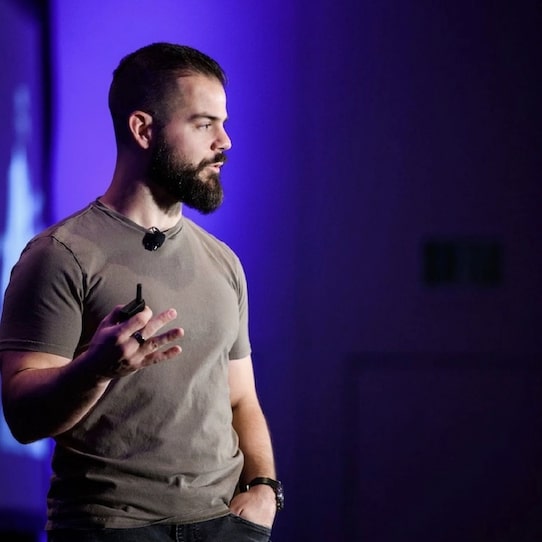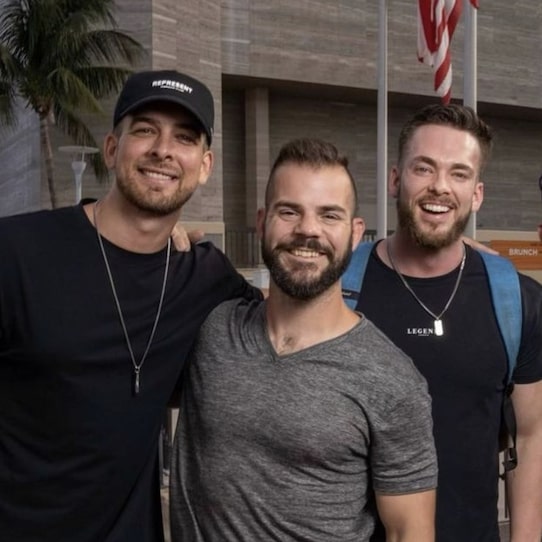
Remote Closing Academy founder Cole Gordon breaks every sales call down into a few parts. There’s the introduction, the information gathering phase, then ya got the transition, the pitch, the committing phase (getting ’em to buy in to the thesis you just presented), and then finally there’s objections. This article’s gonna focus on the introduction because you gotta get off on the right foot—or else the rest of the call’s gonna be Struggle City.
NEXT: Now Compare This To Remote Closing
The introduction, then, can be further divided into two chunks: rapport and frame. Let’s start with rapport. A lot of closers think it’s just, Oh, crazy, our high schools were rivals! Or, how ’bout those Yankees? “Guys, don’t do that, okay?” Cole says. “You don’t want buddy-buddy rapport. You might have rapport with the barista who serves you your Starbucks coffee every day, but if they came and asked you for five grand, you’d be like uh-huh, nope. So what you’re really looking for is trust.”
“And you can’t just expect to build trust in the first minute of the call,” Cole continues. “Trust is built through understanding the problem at a deeper intimate level than the prospect understands themself. Which you do mainly in the information gathering phase and even in the pitch a little bit. So rapport’s about getting in sync with our prospect. There’s a good rhythm to the conversation, right? And the other thing you need to do is demonstrate you’re a real human being. Someone they can trust to lead them through the call.”
It’s as simple as, “Hey, is this John? John, what’s up, it’s Cole. How’s your day going? Oh yeah, cool. Me, I just finished a workout. Anyways. Super excited to talk to ya; I know we have a limited amount of time together, so let’s get going.” Boom, done. You’re being casual, you’re sharing something from your day. Then it’s like, “Do you have a clean sheet of paper, something to take notes with? Cool. Ready to dive in?” That phrases is key; it’s putting you in charge. Also, if they say no—like if they’re driving—they’re not in a buying situation, are they?

In that case—if they’re preoccupied—Cole’ll usually pivot to a two-call close. Do the intro, do the discovery phase, schedule a Zoom call (where they’re more likely to buy) to handle the rest. He makes a good point: If you get mad and just cancel when they say they’re holding their newborn in one hand and cooking dinner with the other, the chance of recouping that lead is very low. So it’s better to do like a half a sales call, get the rapport piece outta the way, and get ’em excited to show up to the next one.
Next, for 98% of the market, Cole’s gonna frame the call. He might skip it for like the rare high net worth individual, but generally speaking it’s a good idea. People need to know what’s going on so they can have a directed conversation. It also helps the new salesperson gain confidence and control. It’ll sound something like this: “I’m really excited to tell ya how we help real estate agents get more leads [for example]. But everything we do is customizable, so tell me a little about where you’re at currently; that way, I can give you the most relevant insight.”
Without a strong frame, it’s like Jordan Belfort likes to say, people can go off to Pluto; they can just start rambling about anything and get way off track. Note, though, at this stage of the call, you’re not mentioning your program or service, and certainly not the price. You wanna keep it vague. More like, Well, with what we have goin’ on over here. ‘Cause if you slip up and say something about the coaching program, for instance, they might interrupt and be like, “Yeah, can you just tell me what it costs.” And now where do ya go? Subscribe to Cole on YouTube for more sales nuggies.
TRENDING: Make Money Without Slimy Sales Calls